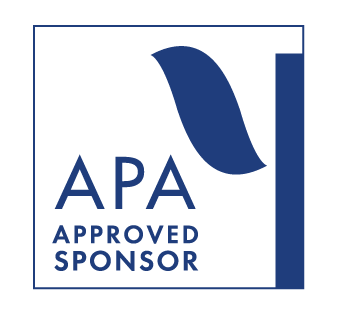
Producer: New Hampshire Psychological Association
In this three-hour workshop, the presenter will provide an overview of the intersectionality between the etiology of eating disorders and contemporary American diet culture, with a specific emphasis on internalized weight biases and the impact this has on clinical work. A deeper clinical dive following this overview will explore appropriate evidence-based treatment (EBTs) and interventions, and the particular limitations of these strategies relative to transgender populations. An introduction to Health at Every Size (HAES) as an innovative new approach to address weight bias and stigma will provide participants additional strategies and tools to promote body and size acceptance in clinical practice.
Learning Objectives
1. Learn practice skills for clinicians to identify & challenge internalized weight stigma
2. Operationalize an understanding of diet culture as the primary contributor to etiology of eating disorders
3. Implement Healthy at Every Size principals in clinical settings, both in treatment planning & office design
4. Learn at least 3 strategies to promote body & size acceptance in clinical practice
About the presenter
Sloane Franklin, LICSW is the executive clinical director of the Center for Eating Disorders Management in Bedford, NH. He is a psychotherapist specializing in cognitive-behavioral treatment of eating disorders, self-harm, depression, anxiety, and trauma. Sloane works with children, teens, adults, couples, and families. He is trained in cognitive behavioral therapy, mindfulness, Dialectical Behavioral Therapy, Cognitive Processing Therapy, and Motivational Interviewing. He provides Family-Based Treatment (Maudsley) for families with a teenager affected by an eating disorder. Sloane has extensive experience and special interest in working with lesbian, gay, bisexual, transgender, queer, and intersex individuals. At CEDM, Sloane leads a group for men with eating disorders and a cognitive therapy group.
In order to receive CEs for this homestudy, the entire video must be viewed. There will be a quiz and an evaluation. Once those are completed a certificate will be distributed.
Courses sponsored by the Vermont Psychological Association are pre-approved for continuing education for psychologists by the Vermont Board of Psychological Examiners. This course qualifies for 3 continuing education credits.
Continuing education courses sponsored by the Vermont Psychological Association are pre-approved by the Vermont Office of Professional Regulation for continuing education credit for licensed independent clinical social workers in Vermont. This course provides 3 CE credits for Vermont licensing.

The New Hampshire Psychological Association is approved by the American Psychological Association to sponsor continuing education for psychologists. The New Hampshire Psychological Association maintains responsibility for this course and its content.
Completion of this course earns 3 continuing education credits. Psychologists licensed in states which approve courses sponsored by APA-approved sponsors may earn homestudy continuing education credit for taking this course.
The Vermont Psychological Association is approved by the American Psychological Association to offer continuing education for psychologists. These credits are also accepted by the New Hampshire Board of Mental Health Practice for clinical social workers licensed in New Hampshire, as provided in Mhp 402.02(b)(1). The course qualifies for 3 continuing education credits.
The Vermont Psychological Association is approved by the American Psychological Association to offer continuing education for psychologists. These credits are also accepted by the New Hampshire Board of Mental Health Practice for clinical mental health counselors licensed in New Hampshire, as provided in Mhp 402.02(b)(1). The course qualifies for mandated credit types as follows:
Ethics:
Suicide Prevention:
The Vermont Psychological Association is approved to offer continuing education to licensed clinical social workers by the Vermont Office of Professional Regulation, and is approved by the American Psychological Association to offer continuing education to psychologists. This course thus qualifies for 3 continuing education credits for Massachusetts licensed clinical social workers in Massachusetts under 258 C.M.R. §§ 31.04(2)(d), 31.04(5).
| Becoming Diet Culture Dropouts (940.5 KB) | 28 Pages | Available after Purchase |

R. Sloane Franklin, LICSW, is the Clinical Director of the Center for Eating Disorders Management in Bedford, New Hampshire. He holds a Masters of Social Work from Boston University (2012), a Masters of Divinity (2004) and a Masters of Theology (2005) from Princeton Theological Seminary, and a Bachelors of Arts from Austin College (2001). Sloane has completed advanced clinician training in Dialectical Behavioral Therapy and is trained in Cognitive Processing Therapy, Acceptance and Commitment Therapy, Family Based Treatment, Cognitive Behavioral Therapy, Cognitive Behavioral Therapy for Eating Disorder, and Motivational Interviewing. Sloane has worked extensively with the treatment of borderline personality disorder, complex trauma & adult survivors of childhood sexual abuse, LGBTQIA issues, and eating disorders. Sloane has delivered continuing education trainings on eating disorders and operationalizing client spirituality. Prior to his work at CEDM, Sloane worked as a clinician at the Mental Health Center of Greater Manchester (NH).
Participants will identify and asses their own internalized weight bias as it relates to clinical care.
On completion of this training, participants will be able to describe and utilize Healthy at Every Size core principals as guidelines in treatment planning, particularly with respect to weight management in the therapeutic setting.
On completion of this training, participants will be able to utilize at least 3 strategies to promote body & size acceptance among clients with eating disorders.